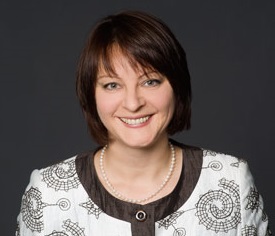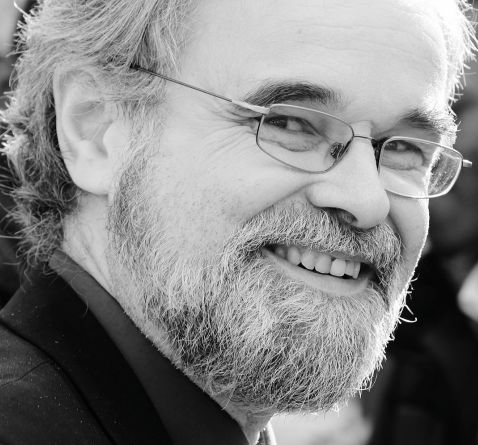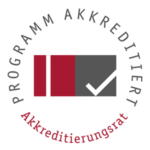-

Master of Arts in Counseling
facilitating, empowering, coaching
Master of Arts
Counseling
The part-time study program provides the theoretical background knowledge and skills required to professionally support crises and change processes. Its transdisciplinary approach is based on the related academic fields of psychology, medicine, communication and economics, sociology, social work and theology.
In view of the processes of change that are currently affecting our society, it is challenging for both individuals and organizations to find the right path for them. Thus in moments when decisions need to be made, it is helpful to have support in this process of transformation and new beginnings. After all, it is about developing different options, critically reflecting and carefully weighing them. This makes it possible, to recognize resources and integrate them into your own or organizational actions. A successful counseling process empowers people to understand changes of our time as an opportunity - and to use them!
Application period
Applicants who need visa:
December 1 to March 31
Applicants who do not need visa:
April 1 to September 15
Beginning of the program
Winter semester
For the dates of the block weeks, see below.
Length of the program
Part-time studies: 3 years / 6 semesters
Study options
Part-time studies
Degree
Master of Arts in Counseling
(120 credits)
Language
German
Tuition
apply now Concentrations
Concentrations
In addition to general modules on counseling, students can choose between two fields of concentration: “Psychosocial Counseling” and “Counseling in/of Organizations”.
The following modules have a stronger focus on psychosocial topics:
- Counseling in the healthcare sector
- Counseling for couples and families
- Trauma counseling
The following modules relate primarily to counseling processes of and in organizations:
- Systemic counseling in organizations
- Leadership and organizational culture
- Organizational development
Although it makes sense to specialize in one of the areas, the modules are designed to be open interchangeable as electives. Regardless of the specialization, the M.A. in Counseling program is resource-oriented, methodologically plural, practice-oriented and research-oriented.
CONCENTRATIONS
 Psychosocial counseling
Psychosocial counseling
Counseling in the healthcare sector
The module provides an overview of psychosocial services and different counseling settings in the healthcare sector. Students learn about psychosocial approaches and methods in counseling patients and relatives. Furthermore, students acquire skills for working in clinical ethics committees and basic knowledge of health promotion. Practical exercises and excursions (e.g. addiction counseling, baby cradle and Desert Flower Center at Waldfriede Hospital; Friendship Bench) and selected topics of health promotion and prevention (e.g. nutrition - eating disorders, obesity; exercise and mindfulness - burnout and addiction prevention) complete the module.
- Counseling for couples and familiesThe module provides the necessary skills to independently carry out and reflect on couple and family counseling. Students are able to create systemically oriented analyses of the situation and problem and to develop support in finding goals and solutions together with the client. Students will learn how to deal appropriately with issues of sexuality in a counseling context. Domestic violence is addressed and students are able to initiate referrals to appropriate psychosocial or health care facilities. Participation in the module also provides students with basic knowledge in family law.
Trauma counseling
In the module, students acquire basic knowledge of crisis and trauma and can distinguish between trauma therapy concepts and trauma counseling. They can make referrals to trauma therapy and/or medical treatment, but at the same time acquire the skills to independently intervene and support people who have experienced trauma. Certification as a TIR (Traumatic Incident Reduction) Facilitator is optional.
 Counseling in/of Organizations
Counseling in/of Organizations
Systemic consulting in organizations
The module teaches methods, techniques and basic attitudes of the systemic approach. Students are able to do systemically oriented situation and problem analyses and provide support in finding goals and solutions. In addition to basic knowledge of occupational and organizational psychology, students are able to apply systemic coaching questioning techniques and have practical experience of the intervention potential of systemic coaching in small group exercises. There are exercises in group counseling and, in addition to theoretical input on burnout, the focus is on mental hygiene and mindfulness exercises.
Leadership and organizational culture
In this module, traditional and new leadership models are presented and students can evaluate and critically reflect on them. This is done on the basis of psychological and ethical aspects of leadership, leadership theories and leadership styles. Elements of Positive Psychology, New Work and the importance of purpose in the context of work and leadership are also covered. Leadership in an intercultural context and leadership and gender are further central aspects of this module. Students gain an understanding of the importance of organizational culture and are able to (co-)initiate and support processes of cultural change. United under the umbrella term of Caring Economics, the module provides a comprehensive overview of current topics in leadership and organizational culture. In addition to the theoretical concepts, practical exercises and excursions illustrate a sound knowledge of leadership and organizational culture.
Organizational development
The module provides basic knowledge of organizational development, in particular strategic organizational development and models and instruments of organizational development. Neuroscientific and psychological learning theories and concepts for developing potential play a role here, as do company health management and the Employee Assistance Program (EAP). Organizational and HR development are considered in the context of current social phenomena such as demographics, gender, internationalization, digitalization and AI. In addition to theoretical input, the aspect of organizational development is also illustrated through practical exercises and excursions.
 General modules
General modules
- Introduction to counseling
- Salutogenesis
- Introduction to psychopathology
- Therapy for specific mental disorders
- Spirituality in therapy and counseling
- Professional ethics and professional law in counseling and therapy
- Methods and fields of counseling
- Practical course I Supervision
- Practical course II Supervision
- Practical course III: Interdisciplinary case conference
- Scientific work
- Methods of empirical social research
- Statistical analysis of quantitative data OR
- Qualitative methods of empirical social research
- Master's thesis
In contrast to non-academic trainings in counseling, this study program includes a strong research focus in addition to theory courses, and a comprehensive internship under supervision.
Academic work, methods of empirical social research, statistical analysis of quantitative data or qualitative methods of empirical social research and the preparation and supervision of the Master's thesis form a central part of the curriculum. The ThHF is represented in the German Association for Counseling (DGfB) via the Association of University Lecturers for the Promotion of Counseling in Research and Academic Teaching (VHBC) and fulfills the training criteria required for the counseling profession.
Organisation of studies
The standard period of study is six semesters. To enable students to study while working, courses take place in block weeks. The program begins in the winter semester. Due to the modular structure of the degree program, it is possible in exceptional cases to begin the course in the summer semester with the modules of the second semester.
Students can apply for educational leave for completion of the program.
Academic Information
Lecture weeks
To the Examination Office
Study regulations:
Module Handbook MA Counseling - 2025
Effective from January 15, 2025
Program-Specific Study Regulations M.A. Counseling
Effective from July 1, 2018
Program-Specific Study Regulations M.A. Counseling
Effective from October 1, 2023
General Study and Examination Regulations
Effective from October 1, 2023
For further questions, please contact the Dean’s Office and Examinations Office.
Occupational fields
Counseling is used as a competence in a wide range of fields in which students are already working and for which they are seeking sound methods and tools.
- In social and health-related counseling centers of independent or municipal providers (counseling centers, areas of responsibility of social work, social and health-related services; in acute, rehabilitation and palliative care facilities as well as in outpatient counseling centers, etc.).
- The Master's degree course is designed for people in management and leadership positions in various social or health-related institutions as well as in church or denominational institutions and organizations, but is of course also suitable for people working in private sector organizations.
- Self-employment as a start-up in the field of counseling, and coaching is in principle possible - although this has to develop a strong USP in a highly competitive field of different counseling services.
Academic Entry Requirements for MA Counseling
Admission requirements for the consecutive degree program starting in the winter semester are a completed degree (B.A., M.A., Dipl., Mag., Dr.) from a recognized university, or colleges in the fields of psychology/business psychology, social work, education, political science and economics, sociology and theology.
We expect a degree with an average grade of 2.5 (B-) or better, although this requirement can be waived or another course of study can be recognized on application under special circumstances. In the case of non-subject-specific degrees, applicants are required to provide evidence of subject-specific knowledge in the field of psychology amounting to at least 5 credits or to provide this within the first two semesters. The examination board of the department decides on the recognition of subject-specific knowledge upon application and submission of relevant documents. The Examinations Office will be happy to answer any questions you may have.
Applicants must provide evidence of at least 50 hours of participation in self-awareness courses. This includes: own therapy experiences, self-awareness in individual and group settings. A maximum of half of the required 50 hours can be made up within the first two semesters upon application to the examination board of the faculty.
To assess applicants' personal suitability and motivation to study, two interviews take place, one with a lecturer from the university and one with a counselor. The interviews are confirmed in writing with the result “likely to be suitable/conditionally suitable/not suitable for counseling training”. If an applicant is assessed as “probably not suitable” in both interviews, admission to the degree program is not possible. If the applicant is assessed as “probably conditionally suitable” in one or both interviews, admission to the course may be made subject to conditions (e.g. additional self-awareness, an individual counseling or therapy process, etc.).

Do you have any questions?
I will be happy to advise you in a phone consultation by appointment
Prof. Dr. phil. Dr. rer. medic. Silvia Hedenigg
Telephone: +49 (0) 3921 916-252
Email:

Any questions?
... on program
... on application
... on finances
... or in general?
I would like to answer your questions!
Telephone: + 49 (0) 3921 916-190
Email:
Application Process
- The application package must be completed online within the application deadlines. Official translations must be submitted in German or English for all foreign-language documents.
- Applications for admission to the degree program are reviewed by two admissions committees: the Academic Admissions Committee and the Finance Committee. The admission decision is made taking into account the available study places and the clarified study financing. The applicant will be notified in writing by e-mail within one week of the meeting of the Admissions Committee/Finance Committee.
- After receiving the admission decision, applicants must transfer the down payment and the deposit to the university within 2-3 weeks, EU citizens by August 31 at the latest, non-EU citizens by May 31 at the latest.
- Once payment has been received, the Admissions Office will send applicants their admission certificate as well as information on starting their studies and how to get there.
- Applicants must provide proof of good German language skills. This can be demonstrated, for example, by a successful TestDaF exam (4 x TDN 4).
